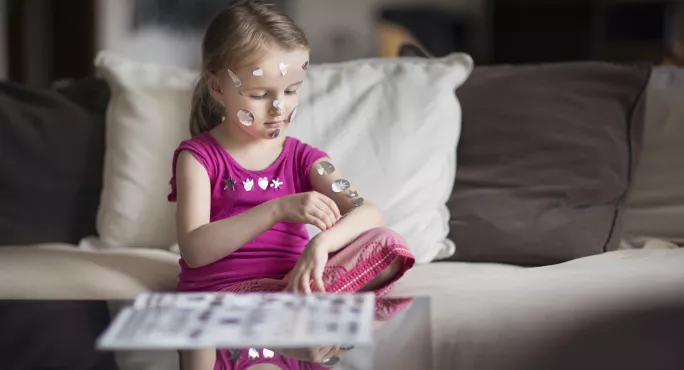- Home
- How to see children as individuals, not labels
How to see children as individuals, not labels

As a deputy headteacher and art educator, I find myself continually frustrated and disheartened with our education system.
Some of the biggest frustrations I have are with the notion of gauging intelligence on a linear scale and the terminology used to categorise individuals who do not conform and fit “in the box”.
I have been teaching for more than 20 years, and I have been saddened for a long time by how many children judge themselves by their so called academic ability - which has been decided for them through standardised tests in predominantly two or three subjects.
Quick read: EYFS: are you letting labels restrict learning?
Quick listen: Five of our best podcasts from the past year
Want to know more? Teacher CPD needs time and space to flourish
A few months ago I sat in a meeting with a child and her parents listening to the child describe herself with a calm acceptance as the “dumbest girl in the year”. I was horrified.
This young lady is one of our most successful actors, with bags of humanity, kindness, warmth and creativity, yet she was labelling herself as a failure because of her ability in what she identifies as the credible subjects.
This young lady is on our individual needs register, receiving extra support and guidance for her maths.
I can’t quite fathom how as a society, with a growing rise in teenage mental health cases, we would continue to knowingly put a huge percentage of our young population down before they’ve even started.
Pre-existing expectations
As unique individuals, we all have needs of varying degrees. As an art teacher I am proud to say that I differentiate by outcome, there are no limits or labels attached to my pupils. I don’t buy into a system that is designed to limit a child because of a pre-existing expectation.
The ethos in my classroom has always been that there are no wrong answers, if you do your best, and give everything a go. That’s all I ask. I believe in nurturing self-efficacy and equipping my pupils with the confidence and resilience to take chances, to fail, to try again, to fail again, to succeed and win at the level that’s right for them. If you teach to high expectations then children will, and do, rise to the challenge.
I follow a fabulous group on Twitter, @MadebyDyslexia. I absolutely love their tweets. Some of our most inspirational, innovative and creative pillars of fame are dyslexic, dyspraxic, autistic, on the spectrum…
The sad thing is that listening to the hundreds of stories shared, all of these human beings were put down at school as being a failure in some way.
In the standardised test system of our schools, these uniquely talented individuals would not, and do not score well, and in too many cases are been labelled, condescendingly patted on the head, and made to feel inadequate or sub-standard.
Enriching our society
I fundamentally believe that our job is to ensure that we enrich our young members of this global society with an education that is brimming with opportunities and experiences; that we ensure each child has a champion, someone who believes in them fully, knows them, understands them and supports them.
Our education system is outdated; it was designed for the industrial revolution. The notion of academic ability is redundant and outdated.
We should refuse to submit our examination results to be judged in a league table alongside other schools. No two schools should ever be compared; no two children should ever be compared.
There are so many variables that make up the individual, it is a complete nonsense. We, the schools and children, are not our exam results.
Day after day, week after week, I read articles from educational specialists claiming to have found the next big marvel that will fix our education system, the next box for our children to squeeze into. The next test to judge our schools, judge our children.
Mindset
I’m a massive supporter of Carol Dweck’s theory of mindset. However much criticism it has come under, I can’t help but think if a child has the perception that they can succeed, that they are credible and worthy, and most importantly that they are “good enough”, then they just might.
By acknowledging, celebrating and giving parity to all types of intelligence, we can support children to realise their potential and find their inner genius.
We need to stop labelling our children, and giving them ceiling limits. We need to stop making them fit into neat boxes, and allow them to be the best person they can be.
We need to give them aspirations to aim for, giving them a purpose and hope - it’s time to set them free. They should be free range chickens not battery hens. Individual, and unique.
Becky Hayes is a deputy headteacher. She tweets at @rhayes_rebecca
Keep reading for just £1 per month
You've reached your limit of free articles this month. Subscribe for £1 per month for three months and get:
- Unlimited access to all Tes magazine content
- Exclusive subscriber-only stories
- Award-winning email newsletters